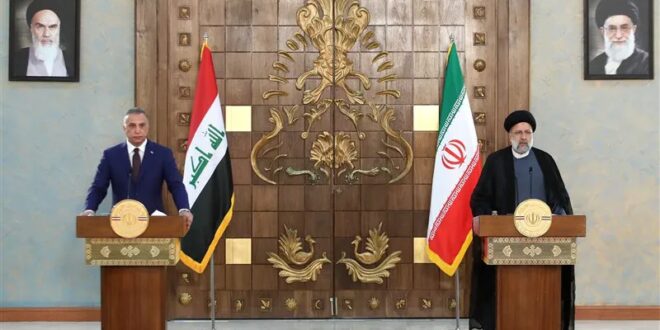In an ideal scenario, Iraq would completely break free from Iranian control. Unfortunately, today’s world — and the Middle East in particular — rarely sees an ideal scenario come to light. The Goldilocks scenario is a mirage in our region. Instead, we usually witness a complicated and endless situation. This is especially true for Iraq. A country with such a rich history and role as an important pillar of the Middle East’s stability is left between the role of being a vassal state and a no man’s land for extremist groups.
Iran, thanks to its militias and control over Iraq’s political parties, is the biggest actor within the country’s decision-making process. This power has increased over the last 10 years, as the US became less focused on the Middle East. Despite the screams of protesters and some political opposition, the country has been unable to rebuild itself and break free of this interference and control. And so, if a Goldilocks scenario is not possible, what could be the next best thing? Is there a way for the Iraqis to balance this influence and recalibrate its bilateral relations with Iran?
In Iraq (and Lebanon too), people have taken to the streets to protest against the Iranian-backed armed militias and Tehran’s political interference. This is especially so as it looks more and more like an occupation, with these groups focused on protecting Iranian interests and not the interests of the Iraqi people or nation. Nevertheless, Iraq currently has a better chance to change this situation than Lebanon does. But it is important to understand what is achievable and what is not. Can Iraq really stop all the Iranian-backed parties and their militias from having a role in government? How does the country establish a new balance in its relations with its neighbor?
It is also worthwhile asking if Muqtada Al-Sadr, who won a majority in parliament, has this objective? Did he plan to rebalance relations with Iran? His resignation, along with all of his MPs, has been regarded by several think tanks in Washington as a gift to Iran. Yet, in reality, it is difficult to see the Islamic Revolutionary Guard Corps accepting any Iraqi government without its sponsored parties and their militias. This would have had consequences not only in Iraq, but also in Iranian domestic policymaking. It would have been a big failure for the IRGC, which portrays itself as an invincible actor. This is reason enough to put the country on fire. Al-Sadr is not an enemy of Iran, but Iran needs to have all its proxies to be able to play its division game. Having one friend or ally in control does not work, as he becomes too powerful.
Iraq’s caretaker Prime Minister Mustafa Al-Kadhimi has shown the will and actions to bring the Iranian-backed militias under control and to limit their influence. He has also shown a great deal of balance between Iranian and Iraqi interests. Yet, with the economic pressures and the many deadlocks in public life, it has been difficult for his government to positively impact people’s everyday lives. And now their patience is running thin. In reality, this is in great part due to the negative role of Iranian-controlled political formations that (like in Lebanon) block and use the state for their own benefits while depleting its resources.
This situation cannot go on for much longer, especially with the global trends. Iran needs to read the situation more carefully, from the protests and their slogans to the recent elections results. We all know the violence the militias are capable of using to protect Iranian interests.
But is that the only way forward? In fact, there is a lot Iran can gain from a stronger and more stable Iraq. A move toward less control and interference — toward what healthy bilateral relations should be — would be the right move. Obviously, Tehran will not let this happen. Therefore, it is down to the Iraqis to change this and to force a new balance in their relations with their neighbor. The objective is not to become enemies, but to be good and respectful neighbors.
There are many reasons why this should happen. The main reason is obviously to bring stability back to Iraq and allow Iraqis from all ethnic and religious groups to be able to live in peace and with honor. Another reason is regional. A stable Iraq with balanced relations with Iran can help bring more stability between Iran and the rest of the Middle East. It is potentially the connecting point or hub for positive relations. Once again, this can only happen through the will of the Iraqis themselves. Iran has no incentive whatsoever to let go of its prize or change what it gains from Iraq today.
The best way to limit Iranian influence is through a proper implementation of the political system: Let the federation work and do not let Tehran impose a centralized system on top of it. A smart federal mindset that brings unity under one flag, while giving freedom to all of Iraq, is the best method for change. It is only by empowering all Iraqis that the country will be able to force the militias into a corner and change the dynamics of Iraq’s relations with Iran and then the Middle East.
 Eurasia Press & News
Eurasia Press & News




